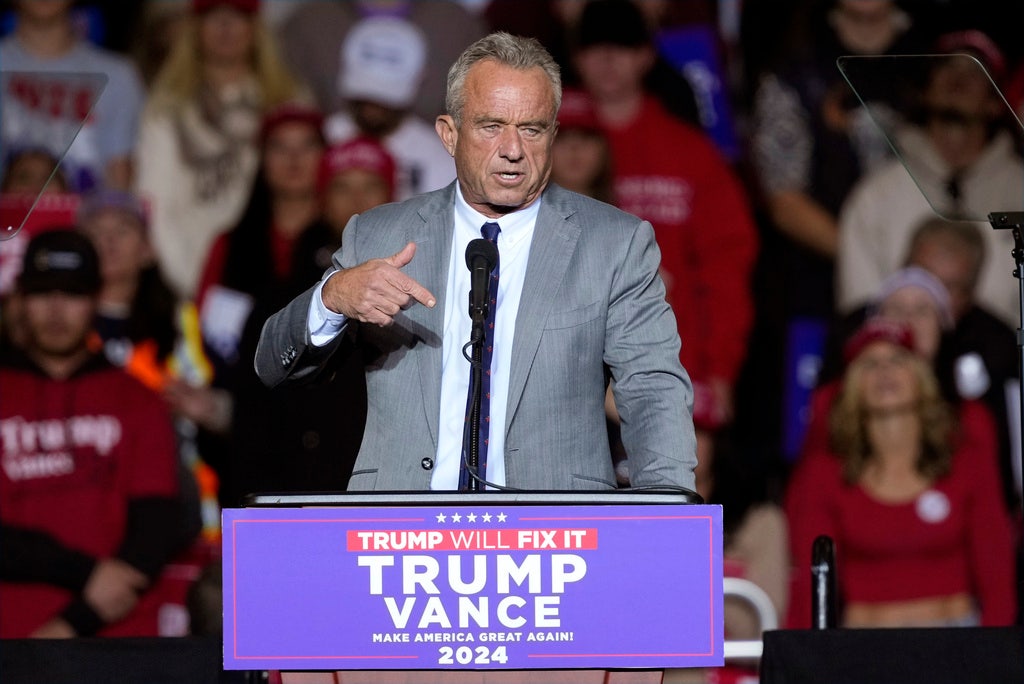Robert F. Kennedy Jr.’s nomination to head the Department of Health and Human Services (DHHS) has sparked significant controversy, with seventy-seven Nobel Prize winners publicly denouncing the prospective appointment. Their primary concerns revolve around Kennedy’s lack of relevant experience in health science or administration, his well-documented opposition to vaccines, and his promotion of unsubstantiated conspiracy theories related to established medical treatments. These laureates argue that entrusting Kennedy with the leadership of DHHS would jeopardize public health and undermine America’s standing as a global leader in health sciences. Their letter to the Senate urges the rejection of his nomination, highlighting the potential for severe negative consequences should he assume control of this crucial federal agency.
Kennedy’s history of skepticism towards established scientific consensus further fuels the opposition to his nomination. His rejection of the scientific link between HIV and AIDS, along with his stance against widely accepted public health interventions like vaccination and water fluoridation, raises serious concerns among the scientific community. The Nobel laureates emphasize that the next health secretary should champion evidence-based practices and strengthen, not threaten, the integrity of institutions like the Food and Drug Administration (FDA), the Centers for Disease Control and Prevention (CDC), and the National Institutes of Health (NIH). Kennedy’s past criticisms of these agencies, including accusations of corruption and describing the CDC’s vaccine division as a “fascist enterprise,” further amplify concerns about his suitability for the role.
The potential implications of Kennedy’s leadership extend to the vast bureaucracy and extensive responsibilities of the DHHS. This department, with a $2 trillion budget, oversees 13 agencies and administers critical programs such as Medicare, Medicaid, and the Affordable Care Act. Given the scope of the department’s influence, the Nobel Laureates argue that placing someone with Kennedy’s views at its helm could have far-reaching and potentially devastating consequences for public health policy and the delivery of essential healthcare services. They contend that Kennedy’s actions and statements demonstrate a disregard for scientific consensus and established public health practices, potentially undermining the department’s ability to effectively address critical health challenges facing the nation.
Kennedy’s nomination follows an endorsement of President Trump’s candidacy during his presidential run as an independent. Trump’s expressed intention to nominate Kennedy, an environmental lawyer and activist known for founding the Children’s Health Defense, a non-profit organization accused of disseminating vaccine misinformation, has further polarized the debate. Kennedy’s organization has notably propagated debunked claims linking vaccines to autism, contributing to the spread of misinformation and fueling vaccine hesitancy. This history further solidifies the Nobel laureates’ concerns about the potential negative impact of his leadership on public health.
Kennedy’s stated goals for the DHHS, including cleaning up alleged corruption, returning the agencies to “gold-standard, evidence-based science,” and ending the chronic disease epidemic, seemingly clash with his track record of questioning established scientific findings and criticizing the very agencies he would be tasked to lead. This apparent contradiction raises questions about his actual intentions and the potential direction of his leadership. Critics argue that his actions and statements suggest a desire to reshape the DHHS based on his personal beliefs rather than established scientific consensus and public health best practices.
The controversy surrounding Kennedy’s nomination also echoes previous debates about the qualifications of individuals appointed to lead the DHHS. President Biden’s nomination of Xavier Becerra, a lawyer and former congressman with limited direct health experience, also faced criticism from conservative groups. While Becerra was ultimately confirmed, his nomination highlighted ongoing concerns about the importance of relevant experience and expertise in leading such a critical agency. Kennedy’s nomination, however, amplifies these concerns significantly given his active opposition to established scientific principles and public health interventions. The stark contrast between his views and the mission of the DHHS raises serious questions about his suitability for the role and the potential ramifications for public health in the United States.

